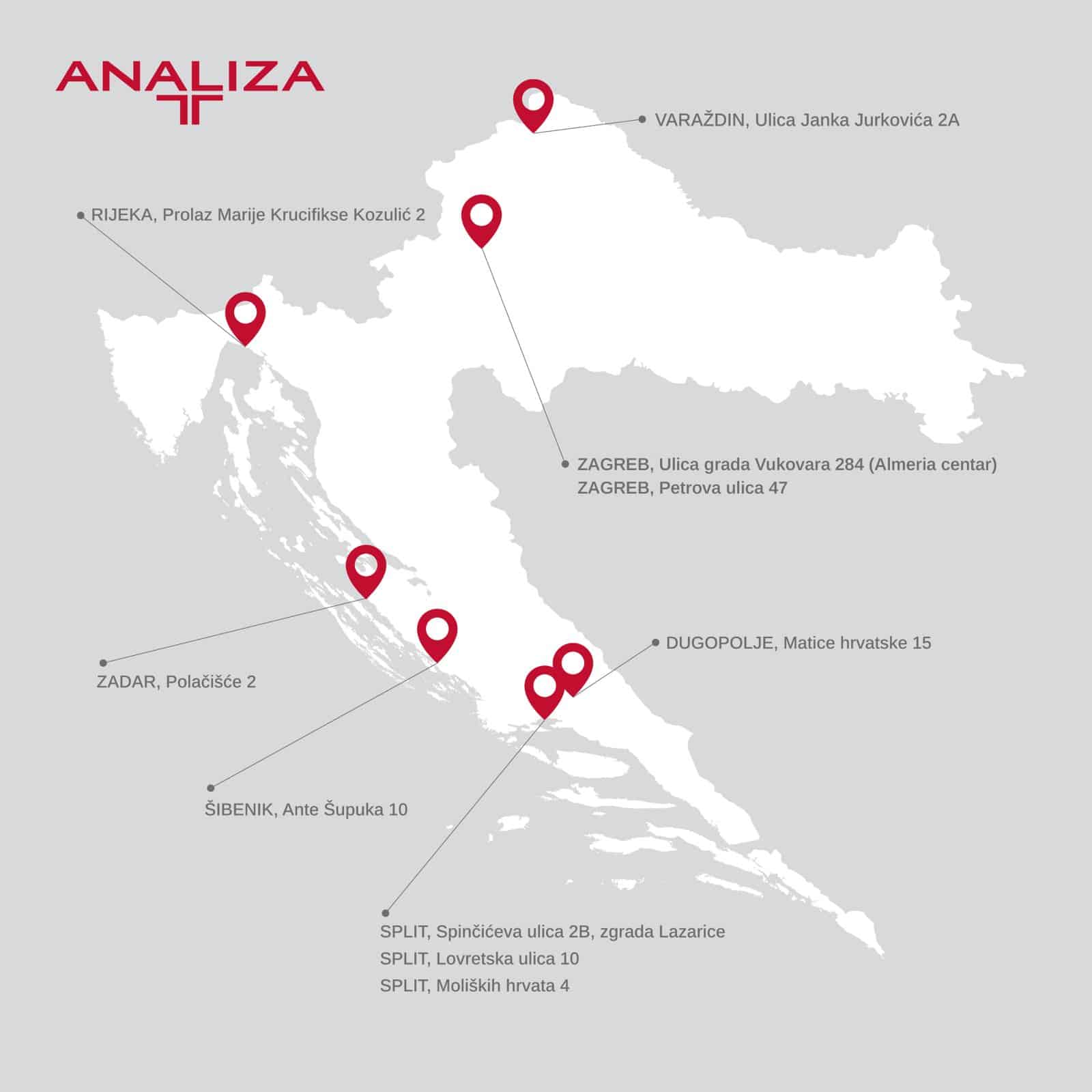PCR Identification of Periodontopathogen bacteria
It is well known that the physiological flora of the oral cavity consists of hundreds of different species of bacteria. Many clinical studies have shown that out of the hundreds of bacteria found in the mouth and periodontal pockets, only a few of them have the highest pathogenic potential for the development of severe and progressive periodontal diseases.
In recent years, there has been increasing importance given to the use of molecular diagnostics in the treatment of periodontitis, in identifying specific periodontopathogenic bacteria, whose overgrowth greatly contributes to the destruction of supporting dental structures, and later implants.
That is why Polyclinic Analiza has introduced a test used for the diagnosis and treatment of inflammatory changes in periodontal tissues and implant diseases. It is an analysis for the presence of 5 periodontopathogenic bacteria in periodontal pockets most commonly associated with periodontitis, which are:
- Actinobacillus actinomycetemcomitans
- Porphyromonas gingivalis
- Bacteroides forsythensis
- Prevotella intermedia
- Treponema denticola
Split
Dugopolje
Zadar
Šibenik
021 688 888
Zagreb
Varaždin
01 2099 880
Rijeka
051 309 309
Periodontitis
Periodontitis, also known as gum disease or periodontal disease, is a serious gum infection that affects the gum tissue and deeper supporting tissues and, if left untreated, can destroy the bone that supports your teeth. Additionally, periodontal disease is also associated with:
- Increased risk of developing heart
- brain, and vascular diseases
- Diabetes
- Respiratory diseases
- Premature birth Osteoporosis
In addition to the mentioned periodontopathogenic bacteria, the development of periodontitis is also aided by:
- Formation of plaque
- Genetic predisposition
- Poor oral hygiene
- Smoking
- Systemic diseases
- Stress

When to get tested?
- If you are planning to get dental implants
- If you suffer from gingivitis and periodontitis
- If you experience frequent bleeding of the gums (while brushing, eating, or spontaneously)
- If you notice redness, swelling, or sensitivity of the gums
- If you observe extensive buildup of dental plaque and tartar
- If you have issues with tooth loss
- If you are a frequent smoker



